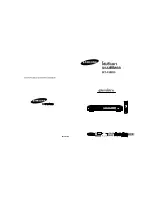
RF600 system planning
4.8 Chemical resistance of the readers and transponders
SIMATIC RF600
System Manual, 06/2019, J31069-D0171-U001-A22-7618
95
4.8.2.8
Polyphenylene sulfide (PPS)
The following table provides an overview of the chemical resistance of the transponder made
of polyphenylene sulfide (PPS). The transponder has special chemical resistance to
solutions up to a temperature of 200 °C. A reduction in the mechanical properties has been
observed in aqueous solutions of hydrochloric acid (HCl) and nitric acid (HNO3) at 80 °C.
The plastic housings are resistant to all types of fuel including methanol.
Table 4- 19 Chemical resistance - polyphenylene sulfide (PPS)
Substance
Test conditions
Evaluation
Concentration [%] Temperature [°C]
Acetone
-
55
℃
++++
n-butanol (butyl alcohol)
-
80
℃
++++
Butanone-2 (methyl ethyl ketone)
-
60
℃
++++
n-butyl acetate
-
80
℃
++++
Brake fluid
-
80
℃
++++
Calcium chloride (saturated)
-
80
℃
++++
Diesel fuel
-
80
℃
++++
Diethyl ether
-
23
℃
++++
Frigene 113
-
23
℃
++++
Anti-freeze
-
120
℃
++++
Kerosene
-
60
℃
++++
Methanol
-
60
℃
++++
Engine oil
-
80
℃
++++
Sodium chloride (saturated)
-
80
℃
++++
Sodium hydroxide
30 %
80
℃
++++
Sodium hypochlorite
(30 or 180 days)
5 %
80
℃
++
5 %
80
℃
-
Sodium hydroxide solution
30 %
90
℃
++++
Nitric acid
10 %
23
℃
++++
Hydrochloric acid
10 %
80
℃
-
Sulfuric acid
10 %
23
℃
++++
10 %
80
℃
++
30 %
23
℃
++++
Tested fuels
-
80
℃
++++
FAM testing fluid
acc. to DIN 51 604-A
Toluene
-
80
℃
++
1, 1, 1-Trichloroethane
Xylene
-
80
℃
++++
Zinc chloride (saturated)
-
80
℃
++
-
75
℃
++++
















































